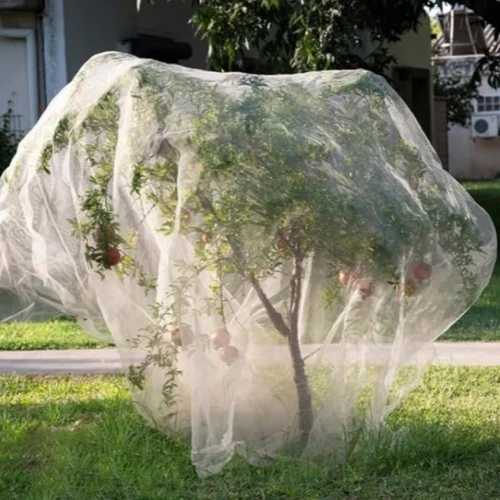-
 Afrikaans
Afrikaans -
 Albanian
Albanian -
 Amharic
Amharic -
 Arabic
Arabic -
 Armenian
Armenian -
 Azerbaijani
Azerbaijani -
 Basque
Basque -
 Belarusian
Belarusian -
 Bengali
Bengali -
 Bosnian
Bosnian -
 Bulgarian
Bulgarian -
 Catalan
Catalan -
 Cebuano
Cebuano -
 China
China -
 Corsican
Corsican -
 Croatian
Croatian -
 Czech
Czech -
 Danish
Danish -
 Dutch
Dutch -
 English
English -
 Esperanto
Esperanto -
 Estonian
Estonian -
 Finnish
Finnish -
 French
French -
 Frisian
Frisian -
 Galician
Galician -
 Georgian
Georgian -
 German
German -
 Greek
Greek -
 Gujarati
Gujarati -
 Haitian Creole
Haitian Creole -
 hausa
hausa -
 hawaiian
hawaiian -
 Hebrew
Hebrew -
 Hindi
Hindi -
 Miao
Miao -
 Hungarian
Hungarian -
 Icelandic
Icelandic -
 igbo
igbo -
 Indonesian
Indonesian -
 irish
irish -
 Italian
Italian -
 Japanese
Japanese -
 Javanese
Javanese -
 Kannada
Kannada -
 kazakh
kazakh -
 Khmer
Khmer -
 Rwandese
Rwandese -
 Korean
Korean -
 Kurdish
Kurdish -
 Kyrgyz
Kyrgyz -
 Lao
Lao -
 Latin
Latin -
 Latvian
Latvian -
 Lithuanian
Lithuanian -
 Luxembourgish
Luxembourgish -
 Macedonian
Macedonian -
 Malgashi
Malgashi -
 Malay
Malay -
 Malayalam
Malayalam -
 Maltese
Maltese -
 Maori
Maori -
 Marathi
Marathi -
 Mongolian
Mongolian -
 Myanmar
Myanmar -
 Nepali
Nepali -
 Norwegian
Norwegian -
 Norwegian
Norwegian -
 Occitan
Occitan -
 Pashto
Pashto -
 Persian
Persian -
 Polish
Polish -
 Portuguese
Portuguese -
 Punjabi
Punjabi -
 Romanian
Romanian -
 Russian
Russian -
 Samoan
Samoan -
 Scottish Gaelic
Scottish Gaelic -
 Serbian
Serbian -
 Sesotho
Sesotho -
 Shona
Shona -
 Sindhi
Sindhi -
 Sinhala
Sinhala -
 Slovak
Slovak -
 Slovenian
Slovenian -
 Somali
Somali -
 Spanish
Spanish -
 Sundanese
Sundanese -
 Swahili
Swahili -
 Swedish
Swedish -
 Tagalog
Tagalog -
 Tajik
Tajik -
 Tamil
Tamil -
 Tatar
Tatar -
 Telugu
Telugu -
 Thai
Thai -
 Turkish
Turkish -
 Turkmen
Turkmen -
 Ukrainian
Ukrainian -
 Urdu
Urdu -
 Uighur
Uighur -
 Uzbek
Uzbek -
 Vietnamese
Vietnamese -
 Welsh
Welsh -
 Bantu
Bantu -
 Yiddish
Yiddish -
 Yoruba
Yoruba -
 Zulu
Zulu
commercial bird netting
The Importance of Commercial Bird Netting in Agriculture
In the world of agriculture, bird management is a growing concern for farmers across various sectors. As populations of birds increase and their natural habitats diminish, these animals often turn to cultivated crops as a source of easy sustenance. This poses a significant challenge, as birds can cause substantial damage to fruit, vegetables, and grains. Consequently, many farmers are adopting commercial bird netting as an effective solution to protect their crops while minimizing harm to wildlife.
Commercial bird netting is designed specifically to deter birds from accessing valuable agricultural produce. It is constructed from durable materials such as polyethylene or polypropylene, which make it resistant to weather conditions and provide long-lasting protection. The netting comes in various mesh sizes, allowing farmers to select the appropriate type based on the specific bird species causing issues in their fields. Smaller mesh sizes are effective against smaller birds like sparrows and finches, while larger mesh can deter bigger species such as starlings and pigeons.
One of the primary advantages of using bird netting in commercial agriculture is its non-lethal approach. Unlike traditional methods that might involve traps or harmful chemicals, netting physically blocks birds from reaching the crops without causing them any harm. This not only meets ethical farming practices but also aligns with consumer demand for sustainable and humane agricultural methods. By protecting crops in this way, farmers can increase their yield and reduce potential financial losses caused by avian damage.
commercial bird netting

Another significant benefit of bird netting is its versatility. It can be used in various settings, including fruit orchards, vineyards, vegetable gardens, and even on rooftops of urban farms. The ease of installation allows farmers to deploy the netting as needed for various growing seasons. Moreover, the netting is often lightweight, making it easy to handle and reposition as required. Farmers can quickly set up netting for seasonal crops or take it down during off-seasons, adapting their practices to meet the needs of their produce and the behaviors of local bird populations.
Additionally, commercial bird netting contributes to the long-term health of the ecosystem. By safeguarding crops from birds, farmers can utilize precise pest management strategies without resorting to harmful chemicals that can have detrimental effects on beneficial insect populations. This promotes biodiversity and encourages natural pollinators to thrive, which is crucial for the health of both crops and the surrounding environment.
While the initial investment in bird netting may seem considerable, the return on investment can be substantial. By preventing bird damage, farmers can significantly enhance their yields, which translates into higher profits. Furthermore, as consumers increasingly seek ethically sourced and environmentally friendly products, practices like bird netting can enhance a farm's marketability and reputation.
In conclusion, commercial bird netting plays a vital role in modern agriculture by protecting crops from avian threats while promoting ethical practices and sustainability. As farmers continue to face challenges from wildlife, the adoption of bird netting is likely to increase, benefiting both agricultural productivity and environmental preservation.
-
Shipping Plastic Bags for Every NeedNewsJul.24,2025
-
Safety Netting: Your Shield in ConstructionNewsJul.24,2025
-
Plastic Mesh Netting for Everyday UseNewsJul.24,2025
-
Nylon Netting for Every UseNewsJul.24,2025
-
Mesh Breeder Box for Fish TanksNewsJul.24,2025
-
Expanded Steel Mesh Offers Durable VersatilityNewsJul.24,2025











